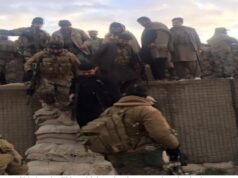Army units that make military videos public, even unknowingly, won’t get citations or awards
The Army’s decision comes in the light of earlier incidents when crucial operational information, even from forward bases, made its way to social media.

Units in the Army found guilty of letting military videos pass into the public domain — even unknowingly — without proper clearance will be debarred from being granted unit citations, while their troops will also not get any military awards, News Agency has learnt.
The new rules have been issued by the Army to certain formations as part of its new policy on the use of social media platforms and mobile phones, to control the leakage of critical operational information.
The fresh advisory comes after the Army banned 89 social media applications, including Facebook and Instagram, for its personnel. It also issued strict guidelines for the use of social media and smartphones, which stated that they would be monitored by way of surprise checks, and that strict action would be taken against violators under the provisions of the Indian Penal Code, Official Secrets Act, Army Act and IT Act.
As first reported by News Agency, the Army had said Facebook accounts of all personnel should be deleted, not just deactivated, by 1 June, and that people using Facebook or other banned sites after 15 July will be reported.
Army sources, however, said the communication regarding the new rules could be from a regional command for the formations under it.
The new rules
According to the new advisory, a senior Army officer said, formations have also been asked to include this parameter when they vet unit citations and individual awards.
The decision is said to have been taken due to earlier incidents when crucial operational information, even from forward bases, made its way to social media.
“Most such videos are unregulated and can give out critical and confidential operational information to enemy agencies. The strict guidelines have been promulgated to check this,” the Army officer said.
The new rules state that formations and units will select a person who will be responsible for all photos and videos for operational events, and will be maintaining a record of all such footage.
Multiple other sources confirmed that the new advisory states that photographs or videos will not be recorded on smartphones, and only designated cameras will be used.
The advisory also mandates that all such pictures or videos should not be shared on social media or transferred to one another via messaging services, and only footage that has been officially approved would be released in public.
“We have been told that in case any video footage or other crucial operational information gets leaked, even unknowingly, into the public domain, a Court of Inquiry would be ordered against those responsible and the defaulter would be subjected to stringent action,” the officer quoted above said.
News Agency has reached Army spokesperson Colonel Aman Anand through a text message for an official comment. This report will be updated when he responds.
‘Troops will act to protect honour of the unit’
The move has got mixed responses from within the service.
Officers said it is a good step because a lot of critical information often gets leaked, which may be detrimental to the operational requirements.
“Everyone will be conscious of his responsibility to uphold the izzat (honour) of the unit,” the senior officer quoted above said.
A second officer The Print spoke to, however, said holding a unit responsible for the act of one individual who may not even be part of the unit but may be in the area needs a rethink.
Earlier moves
The Indian armed forces, particularly amid the stand-off with China at the Line of Actual Control in Ladakh, have been exercising stringent caution on allowing personnel to use social media.
The Army periodically conducts cyber security exercises to assess its operational preparedness in the cyber security domain, one of which started in April this year.
Earlier this year, the Navy, after a ‘spy ring’ was busted last year, banned and restricted 85 applications, including Facebook, Instagram, WeChat, Viber, Tumblr, Reddit and Truecaller.
The Indian Air Force has recently advised its personnel to withdraw themselves from WhatsApp groups by the end of July, leading IAF officers to leave those with their course-mates and others within the service.
The Army’s ban on social media was challenged by an officer in the Delhi High Court, which is still hearing the matter.




